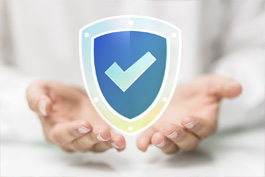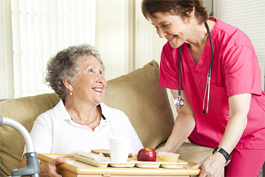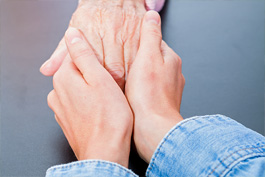The AARP Bulletin listed 10 Questions to Ask Before Hiring a Health Aide. Ativa meets or exceeds all criteria.

How do you recruit home health aides, and what are your hiring requirements?
We recruit only highly skilled and experienced caregivers. Many of our caregivers have worked for decades in home care. We perform multiple interviews and comprehensive testing with our prospective employees; we also obtain multiple references from reliable sources (healthcare institutions, home care agencies, previous clients, etc.) as well as do a complete background check.

Do you do criminal background checks on prospective aides?
Ativa performs thorough reference and criminal background checks, on both a local and national level. We verify Social Security numbers and work eligibility.

Are health aides certified in CPR, or do they have any health-related training?
All caregivers are certified in CPR and attend an orientation training session that includes a review of the company policies and procedures. Every caregiver is educated on incontinence care, protective undergarment changing, client emergency preparedness, cleanliness, universal precautions, and hands-on transferring. In addition, our caregivers receive training by our supervising nurse on-site in the community or in clients' homes. Our nurse provides ongoing caregiver supervision and stays in regular contact with clients and families.

Are the aides bonded and insured through your agency?
Ativa is insured at some of the highest levels of professional and liability coverage available. For our client’s protection and peace of mind, Ativa caregivers are bonded and covered by worker’s compensation insurance. We also carry general liability insurance coverage.

What competencies are expected of the aide? Lifting and transfers? Personal care skills (bathing, dressing, toileting)?
Caregivers provide support in activities of daily living including bathing, dressing, feeding, and toileting, as well as preparing light meals, preparing clothes for dressing, reminding to take medications, lifting and transferring if needed, going to doctor appointments, and organizing the home. In addition, Ativa caregivers receive training by our supervising nurse on-site in the community or in clients' homes. Our nurse provides ongoing caregiver supervision and stays in regular contact with clients and families.

How do you assess what the aide is capable of doing?
We perform multiple interviews and comprehensive testing with our prospective employees. The supervisory nurse will continue to supervise the caregiver and check up on the client on a weekly basis.

What is your policy on providing a substitute home health care aide in the event a regular care provider cannot perform the services in your contract?
We have staff available 24 hours a day; 7 days a week should your caregiver need to cancel for any reason or if any issue arises. We have backup caregivers and will match a replacement caregiver that best suits your needs.

If there is dissatisfaction with a particular home care provider, can he or she be replaced “without cause”?
We are committed to handling any conflict or complaint immediately. Our goal is for a positive resolution as soon as possible. We acknowledge and honor that we are guests in our clients’ homes and respect that there may be times when we need to alter staffing arrangements or the plan of care based on feedback that we receive from the field staff, clients, and families. At our start of care visit, we ask for your feedback as soon as you realize that there is an issue or challenge, so we can resolve it that day or as soon as possible.

Does the agency provide a supervisor who is responsible for regularly evaluating the quality of home care?
Before beginning services, a nurse will visit the person needing care in their home, hospital, rehab, or community and perform an evaluation and assessment. The nurse then prepares a written plan of care that describes the individual’s care needs and goals. The nurse will coordinate with doctors, therapists, discharge planners, and hospice to ensure that care is consistent with goals and orders. For more complex care, caregivers may be trained in facilities before the person returns home. The nurse will assist with the set up and care schedule. On the first day of service the nurse will introduce and orient the caregiver to the individual receiving care in their home. The nurse will then continue to supervise the caregiver, check up on the client on a weekly basis, coordinate with medical personnel, and continue monitoring medications if applicable.

Does supervision occur over the telephone, through progress reports or in person at the home of the older adult?
The caregiver keeps a daily log documenting the client’s health behavior and caregiving activities. The supervisory nurse will visit the client’s home on a weekly basis and communicate with the family regularly.
